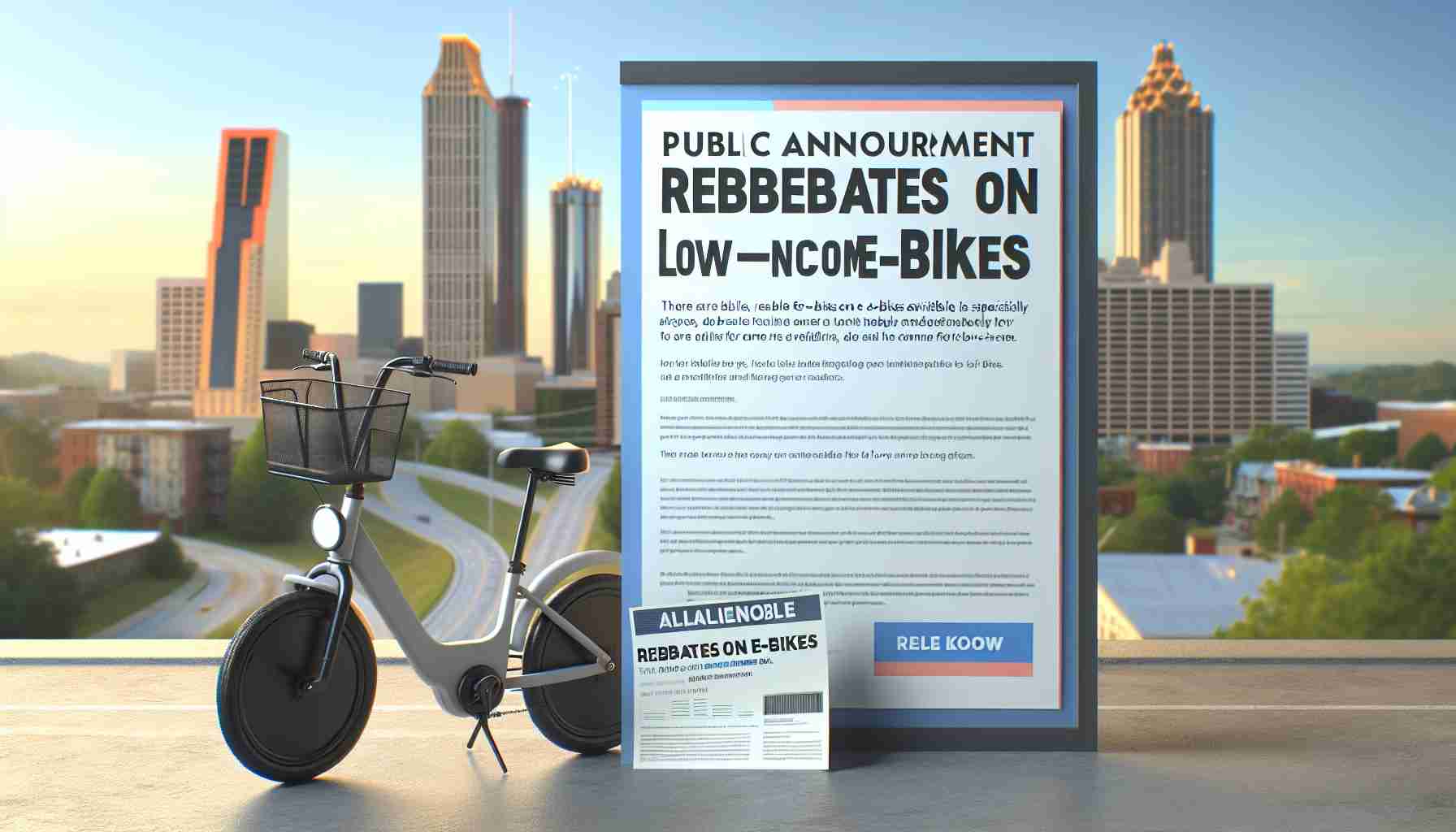Transportation costs can add up quickly, whether you’re paying off a car loan, spending money on gas, or buying public transit passes. To help low-income households save money, the Atlanta Regional Commission, in partnership with the city of Atlanta and a local nonprofit, is offering rebates on new electric bikes (e-bikes).
The upfront cost of e-bikes can be expensive, making them inaccessible to many low-income residents. However, through this program, individuals who make 80% or less of the area’s median household income will be eligible to receive up to $1,500 off an e-bike or $2,000 off an electric cargo bike.
This initiative aims to provide affordable and climate-friendly transportation options to more low-income residents in Atlanta. By offering rebates on e-bikes, individuals can save money on commuting and transportation expenses. Not only does this benefit their wallets, but it also contributes to reducing carbon emissions and promoting a cleaner environment.
Instead of requiring recipients to front the money and wait for reimbursement or a tax credit, the program is streamlined. Once eligible residents are approved, they will receive a code that can be presented at participating bike shops. This allows them to obtain the discount right away and immediately access the benefits of an e-bike.
By making e-bikes more financially accessible, this program enables low-income Atlanta residents to experience the advantages of this mode of transportation. It opens up opportunities for individuals to easily commute within the city, move around throughout the day with their families or children using cargo bikes, and save money on transportation expenses.
Through initiatives like this, cities can empower their residents while also contributing to a sustainable and inclusive future.
The electric bike (e-bike) industry has been gaining momentum in recent years, driven by the increasing demand for sustainable transportation options. E-bikes are bicycles with integrated electric motors that provide assistance to riders, making it easier to climb hills and travel longer distances without exerting excessive effort.
According to market forecasts, the global e-bike market is projected to grow at a significant rate in the coming years. Factors such as rising environmental concerns, improvements in battery technology, and increasing infrastructure support for cycling are expected to drive the demand for e-bikes. This growth is particularly significant in urban areas, where e-bikes offer a convenient alternative to cars and public transportation.
However, one of the major barriers to widespread adoption of e-bikes is their upfront cost. Traditional e-bikes can be expensive, making them inaccessible to low-income individuals. This is where initiatives such as the one implemented by the Atlanta Regional Commission and the city of Atlanta come into play, providing rebates to make e-bikes more affordable for low-income residents.
By offering rebates of up to $1,500 off an e-bike or $2,000 off an electric cargo bike, this program aims to make e-bikes financially accessible to low-income households. This not only helps these individuals save money on commuting and transportation expenses but also enables them to experience the benefits of e-bikes, such as improved mobility and reduced reliance on cars.
Moreover, this initiative aligns with the broader goal of reducing carbon emissions and promoting a cleaner environment. E-bikes are considered a sustainable mode of transportation since they emit minimal to no greenhouse gases during operation. By encouraging the use of e-bikes, the program contributes to the overall efforts of combating climate change and creating a more sustainable future.
In addition to affordability, the program also streamlines the process for eligible residents to obtain the rebate. Rather than requiring recipients to front the money and then seek reimbursement or tax credits, the program provides eligible residents with a code that can be presented at participating bike shops to instantly obtain the discount. This ensures that individuals can immediately access the benefits of an e-bike, further incentivizing their adoption.
By implementing initiatives that make e-bikes more financially accessible, cities like Atlanta are not only improving transportation options for low-income residents but also contributing to a sustainable and inclusive future. E-bikes offer a practical and eco-friendly alternative to traditional modes of transportation, and by expanding access to them, cities can enhance mobility, reduce emissions, and create more equitable communities.
Related Links:
Global E-bike market forecasts
Atlanta Regional Commission Electric Bike Rebate Program
